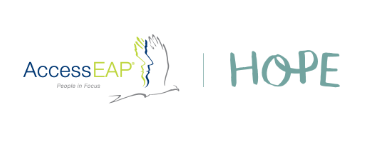The H.O.P.E. Program

According to the 2016 census, there were 293 children born to mothers aged 15 – 24 years in the Sydney metropolitan area, of these births an estimated 139 children were removed and placed in out of home care before they were 12 months old.
The NSW Government's Targeted Earlier Intervention Program has identified that children under three years in younger parent families, and especially with caregivers who are Aboriginal, and have experienced vulnerabilities such as a history of mental illness, domestic violence, drug and alcohol abuse, low education, housing stress and unemployment have been identified as a priority for support and family preservation.
It has been estimated that while vulnerable children make up 1% of the NSW population, the future cost of child protection services for these children, if their needs are not addressed, will be 45% of all government services.
Living without stable housing in the early years of life is a traumatic life experience which adversely affects children's sense of security, mood, behaviour, physical health, education, and overall experience of childhood. Children who experience homelessness in their early years are exposed to a higher risk of harm and are more likely to enter the child protection system, engage in more high risk behaviours and have an increased risk of homelessness in adulthood.
Disengagement from the education system and unemployment has been demonstrated to have an association with poor mental health and socio-economic disadvantage. Children in jobless families are more than four times more likely to be homeless than kids in families where an adult works.
The HOPE program fills a service gap by providing accessible, flexible and responsive support to young mothers and their children with complex needs, who may otherwise experience barriers in engaging with services.
Since its inception, 135 families have completed the HOPE program.
Families like Hayley's. Hayley and her two children, Tyrell, now aged two and Ayiesha, four, were living in one bedroom in an unsafe house. Hayley knew it was unhealthy for her and her kids and that something had to change. So she reached out to HOPE.
Hayley had clear goals of what she wanted to achieve through the program. HOPE helped her find safe accommodation for her family. She learned how to make healthy food for her kids. She also wanted to learn about her kids' developmental needs and the types of activities that would help them achieve them. This led to her discovering, with the help of her Family Worker, that her son's communication skills were not as well-developed as they should be. The worker gave Hayley some fun games to play with her son to encourage his speech and 'I spy' quickly became a family favourite. They also found an Aboriginal health service that could provide speech therapy.
Another goal Hayley set herself was to go back to TAFE to learn how to be a midwife, which she loves. And while her relationship with her dad has always been good, it was a different story with her mother in the past. Now, they're starting to talk again.
"I feel amazing that I did it. That I'm getting there. HOPE changed my life."
For further information on the HOPE program visit catholiccare.org/HOPE
